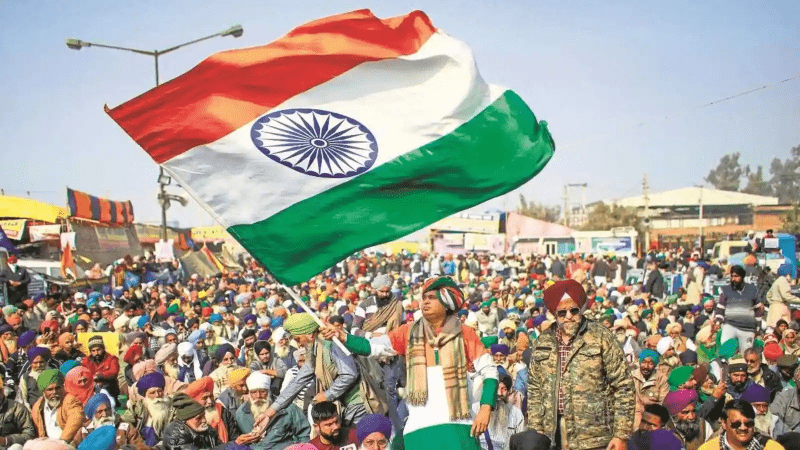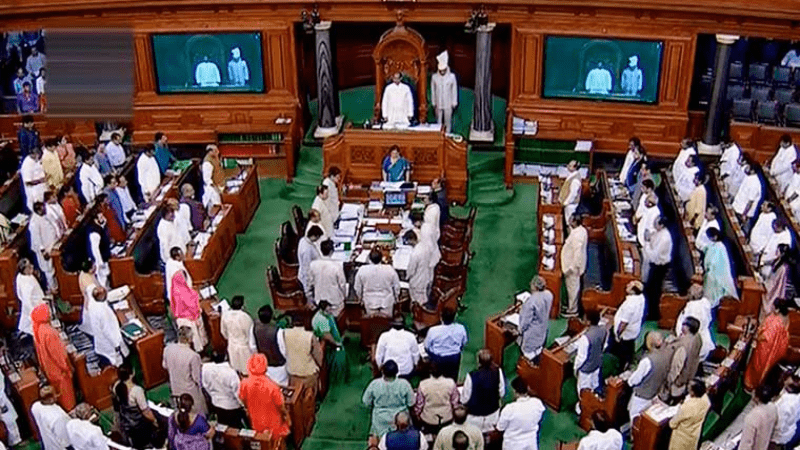On 5th June 2020, the union government promulgated ordinances of three farm laws. Subsequently, in September, the government tabled them in Parliament. At first, sporadic protests took place across the country and especially in Punjab and Haryana. All India Kisan Sangarsha Coordination Committee (ALKSCC) - an umbrella organization of the farmers called for nationwide protests and the ‘Delhi Chalo’ movement. Meanwhile, different means for quelling the protests got carried out by the ruling dispensation. In November 2021, the Union government finally decided to repeal all three farm laws. While stating the reasons, it highlighted that the government could not convince the ‘minority section’ of farmers about the importance of farm laws. After the repeal, pro-reform thinkers argued that now ‘reforms’ in agriculture will be a distant dream. The conversation mostly was around the merits or demerits of the laws. However, the passage of farm laws bypassed the constitutional democratic principles at every step. The deadlock between farmers and the government was a result of the submergence of democratic principles. Therefore, it is an important aspect that needs due attention.
Undue interference in the federal structure
According to the Seventh Schedule of the Indian constitution, Agriculture is a state subject. Although the word agriculture finds its place in Union and Concurrent list it is limited to succession, estate duty, custody of agricultural land, etc. It means the state governments have exclusive powers over the formulation of policies relating to agriculture. The union government can only make laws in case of an extraordinary situation. Both the Union and state governments have the right to frame policies for the concurrent list. In case of conflict, the Union government has overriding powers over states. The Concurrent list 33 (b) mentions trade and commerce in foodstuffs. The union government took recourse to this entry for framing farm laws. By doing so, the Union overstepped outside of its jurisdiction without following the constitutional framework.
Bypassing Parliament- President mute spectator
In the case of parliamentary recess, the constitution provides temporary law-making power to the executive. The promulgation of Ordinance power is in the case of ‘necessary immediate action’. What was necessary immediate action for the passage of ordinances for farm laws? The question remains unanswered. Ordinance power is repeatedly misused by many governments both at the Union and State levels. President needs to question the Cabinet's decision for passage of an ordinance. Many Presidents have raised concerns about the Ordinances. The current President has not uttered a single word in this regard. The government is brazenly using it even for extension of tenured for public officials. The silence raises questions on President’s objectivity and undermines the very institution.
Committee Stage- Form for deliberation
It is a general practice of referring bills to the Parliamentary committees. In UPA II, 71 % of bills got referred to Parliamentary committees. The figure for the current Lok Sabha approximately is staggeringly low at just 25%. Parliamentary committees are a forum where members of Parliament (MPs) can scrutinize the bills in detail. The committees carry out research, take representation from various stakeholders, and can also consult experts. The committee stage is a long process as it provides a platform for in-depth deliberation. If farm laws would have been gone through the committee stage, there was a high chance that all the stakeholders would have got due representation in the formulation process itself. Due to the ignorance of the Parliamentary process, the farmers never got an official forum to raise their voice. If you are making laws for our benefit, at least ask us once. The fundamental question asked by farmers would have not surfaced if the due process got followed. To sum up, in the words of K.R Narayanan, “the main purpose, of course, is to ensure the accountability of Government to Parliament through more detailed consideration of measures in these committees. The purpose is not to weaken or criticize the administration but to strengthen by investing in with more meaningful parliamentary support.”
Voice Votes and partisan behaviour
Generally, Bills in Parliament get passed by voice votes. The chairperson asks the members to raise ayes for those in favour. Noes get raised by those who are not in the favour. The chairperson then declares whether there are more ayes or noes. There is no actual counting of individual member votes. Instead, it is the Chairman's call based on the personal evaluation. It is the right of every MP to question the Chairman's decision and ask for a recording of all members votes. If any member raises the question, the Chairman has to follow the following steps:
- S/He must ask all the members to take a seat
- Clear the lobby
- Take vote count. Mostly carried out on an electronic vote recording machine.
Amidst disruptions, the farm bills got passed in Rajya Sabha with voice votes. The MPs argued their demand for the recording of votes got overlooked by Deputy Chairperson Harivansh. In this light, one can question whether these bills genuinely got passed in Parliament.
Need for Pursuit of listening
The Parliament is the highest deliberative forum of the nation. The formulation of laws by following Parliamentary steps could have provided State governments, farmers, researchers, experts, opposition, and even government MPs to raise their opinion, concern, doubt, and suggestions. By bypassing these procedures, the government cornered every stakeholder. The sole voice cannot direct the way for the country as it is counterproductive. The need of the hour for the current regime is to follow all the parliamentary principles as they help one to ‘listen’. It will help in convincing the so-called minority and avoid a fiasco!
Yes, India needs too much Democracy
Recently NITI Aayog CEO said, “We are too much of a democracy… tough reforms hard.” In stark contrast, there are numerous examples of confinement to undemocratic principles for passing so-called reforms. Further, to legitimize any State action, there is a growing phenomenon of confining democracy only to elections. The idea of democracy goes beyond this. It is an essential part of democracy about what happens between the elections. Democracy is about political participation, civil liberties, deliberation, parliamentary principles, the right to be heard, etc. It is not the first time that the ruling dispensation has faced issues in carrying out reforms. In the year 1991, India undertook bold and historic economic reforms. It was P. V. Narasimha Rao who gave political backing to then Finance Minister Manmohan Singh. The reforms were vociferous, opposed by BJP, Left, many industrialists, and business houses. Even there were very few takers in PM's own party. Rao was successful because he ensured dialogue and the creation of consensus. There are several such anecdotes in the Indian Parliamentary history about how very same democratic principles got used for ensuring passage for reforms. Therefore, instead of using the majority in the Parliament to submerge the democracy. The government needs to focus on ensuring adherence to it. It would then definitely pave the way towards the reforms. Farm reforms are a good case study for the current regime to apply the principles of too much democracy in functioning! It will help them in ensuring good governance.
- Akshay Joshi
akshayjoshi6090@gmail.com
(Writer is a Public Policy Practitioner)
Tags: Modigovernment Farmlawsrepealed farmersprotest Load More Tags

































Add Comment